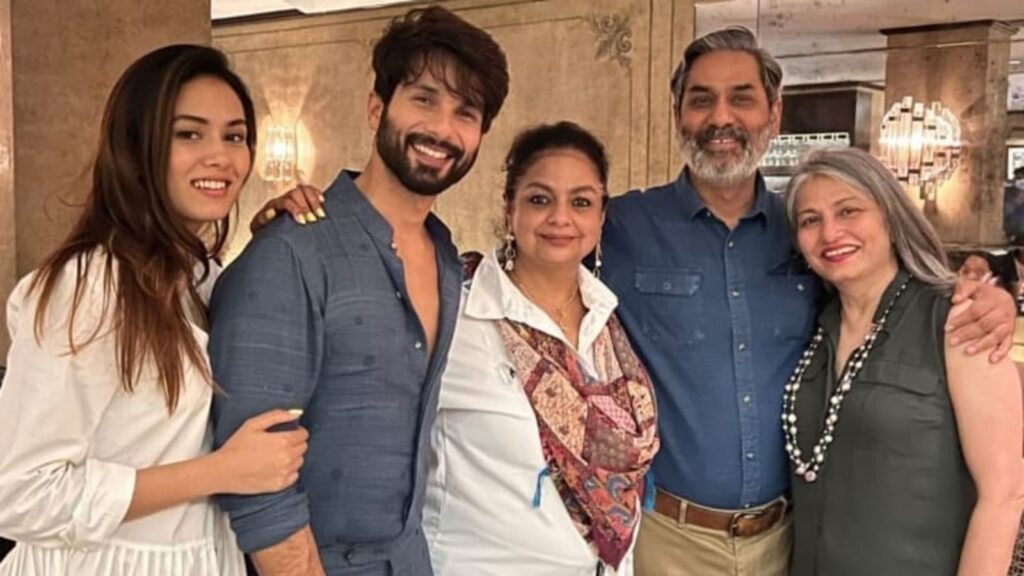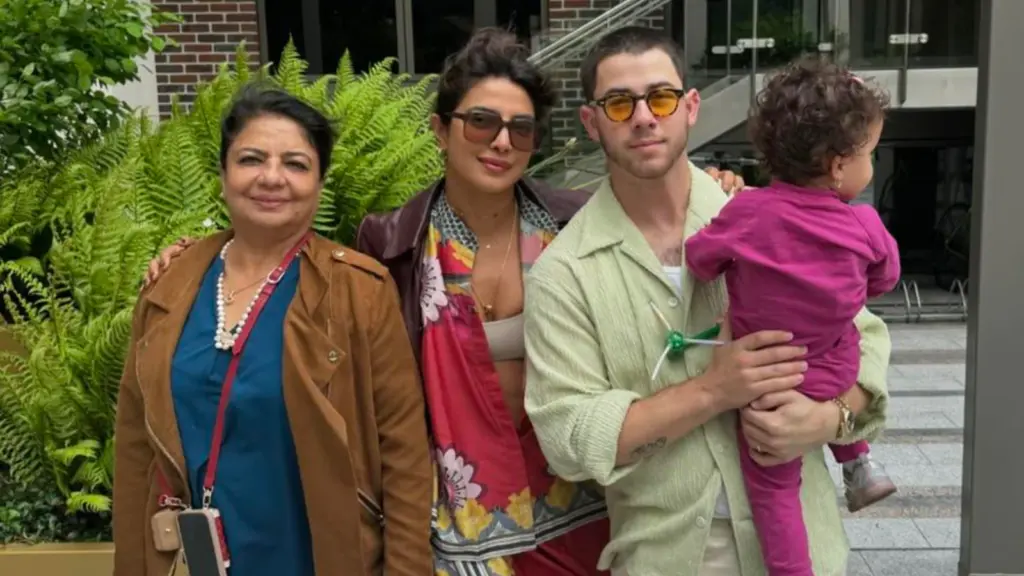Falling in love with someone is magic, but falling in love with their family? That’s a whole other journey—one made up of tentative small talk, mismatched expectations, Sunday lunches, and the slow discovery of a new kind of belonging. While romantic relationships get all the attention, what often goes unsaid is just how significant it is to build a connection with your partner’s family. After all, love may be between two people, but life is lived among many.
We believe there are about nine stages of falling in love with your partner’s people. Because while your relationship with them may begin with pleasantries, it can very well end with inside jokes, spontaneous calls, and a shared sense of home. From polite nods and awkward greetings to sending reels to your new mother-in-law, here’s a delightful look at the evolving, and often hilarious relationship you build with your partner’s people.
1. The polite-but-performative phase
The first meeting is nothing short of a performance. You rehearse your answers on the way, practice your smile in the mirror, and silently hope there are no questions about politics, religion, or what your “long-term intentions” are. Every interaction is deliberate, from how you greet them to how long you laugh at their dad’s mildly outdated jokes. You find yourself nodding more than speaking, complimenting everything from the tea to the furniture, and wondering if your outfit is too formal or not formal enough.


Your partner watches nervously from the sidelines, willing everyone to get along. It’s not a disaster, but it’s not exactly natural either. The entire evening feels like a first date, just with a lot more people, and a lot more pressure.
2. The selective texting stage
Once you pass the first test, you get the number save. Messages begin to trickle in, mostly courteous hellos, festival greetings, or an overly pixelated picture of a sunset accompanied by a quote about kindness. You reply with polite emojis, wondering if this is a test of your texting etiquette or just a very enthusiastic morning routine. Somewhere along the way, you start replying with more than a thumbs-up. A “How lovely!” here, a “Hope you’re having a great day!” there.
There’s still a little distance, but it’s the kind that hums with potential. You’ve made it past the front door. Now you’re standing in the hallway, waiting to be truly let in.
3. The festival-ready phase
The next stage is a milestone you don’t always see coming. Suddenly, you’re invited to family dinners, birthdays, festive gatherings, or whatever tradition calls for a big table, some food, and lots of opinions. It’s not just about being present; it’s about being seen. You’re offered sweets, drawn into family photos, and handed a plate like it’s the most natural thing in the world. You’ve begun the transition from guest to honorary member.
You still second-guess yourself; do you bring a gift? Are hugs okay? Should you help clear the table? But slowly, you learn the rhythm. The family rituals no longer feel foreign. You even find yourself looking forward to them, planning your schedule around showing up and showing up well.
4. The accidental oversharing moment
No matter how careful you are, there will come a moment when you say something… mildly inappropriate. Perhaps you blurt out an awkward anecdote about your partner, or admit you can’t cook to save your life, or curse a little too casually. Time slows down. You wait for the reaction. And then, to your surprise, someone bursts out laughing. Or says, “Honestly, same.”
This is the turning point. The moment when the performative filter comes off and your real self slips through. And rather than being judged, you’re met with warmth—or at the very least, amused tolerance. It’s freeing, really. To be known a little more honestly.
5. The sibling satire bond
When you’re finally accepted by your partner’s siblings, it hits different. They pull you aside, tease your partner in front of you, and reveal stories you were never supposed to hear. They roll their eyes together with you. They loop you into group chats, ask for your opinion on outfits or work drama, and maybe even confide in you when no one else is watching.
This is the moment you feel less like “the partner” and more like one of their own. It’s not forced. It’s not polite. It’s real, unfiltered, and wrapped in affection only siblings can offer.
6. The comfortably unkempt era
You’ve crossed the halfway mark. You no longer dress up just to visit. You know where the spoons are kept. You’ve stopped asking for water and started pouring it yourself. You arrive with wet hair, messy buns, or socks that don’t match, and no one bats an eyelid. You might even leave with a tub of leftovers and a request to visit again soon.
The relationship has matured. You’ve moved past approval-seeking and settled into authenticity. Silence doesn’t feel awkward anymore. You nap on the couch. You suggest movies. You help load the dishwasher. You’re not a guest—they’ve made room for you.
7. The reels and voice notes phase
Ah, digital intimacy. You and your partner’s mom now share recipe reels, memes about relationships, or funny dog videos. There’s a rhythm to the exchange: you send, they respond, they send, you react. It’s sweet, sometimes silly, and unexpectedly sacred.

This is where the connection blooms in the mundane. It’s not always about big conversations or dramatic dinners. Sometimes, it’s about sharing content, sending heart emojis, and knowing they thought of you in a quiet moment of their day. You’ve gone beyond formalities. You’re part of their screen time now.
8. The first fight fallout
Every couple has arguments. But what’s fascinating is how your partner’s family reacts to them. Maybe you vent in front of their sibling, or maybe you stay quiet during a visit and someone notices. Then, out of nowhere, you get a message or a phone call. A reassuring voice says, “He can be stubborn sometimes. Don’t let it get to you.”
This is big. It means they care about your place in the equation, not just as someone connected to their child, but as a person in your own right. When the family begins to support you, even gently, you realise just how far you’ve come.
9. The my-people-are-your-people stage
Eventually, the lines between your world and theirs begin to blur. They ask about your parents. Your partner’s aunt sends a birthday message to your sibling. There’s a photo of all of you at a holiday together, and no one remembers who invited whom. You’ve stopped being “someone’s partner” and become simply… part of the family.

It’s a quiet but profound transformation. Not marked by any one moment, but by many small ones. A shared recipe. A group chat. A last-minute dinner plan. A sense of being included, even when you’re not in the room.
Falling in love with your partner’s family isn’t always linear or easy, but it is one of the most unexpectedly fulfilling relationships you’ll ever build. It’s a love born not out of romance but out of trust, consistency, and the decision to care. It’s the slow unfolding of something beautiful—proof that love doesn’t just grow in hearts but in homes.













